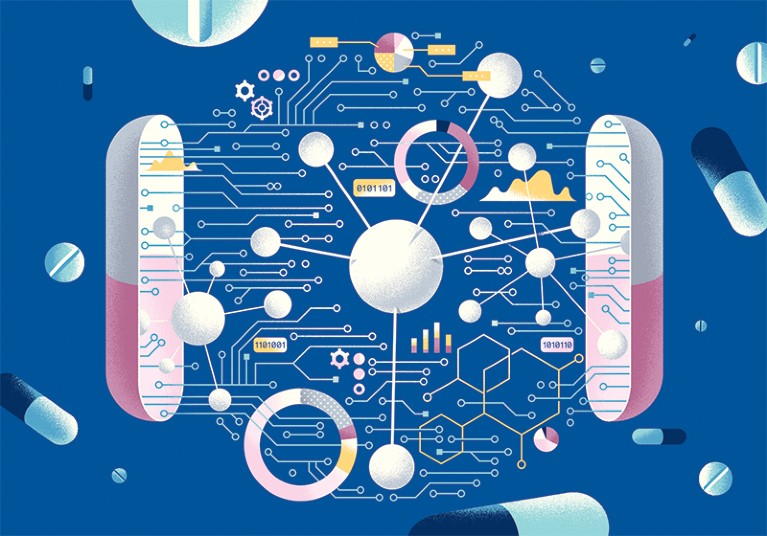
The Role of AI in Drug Discovery: Revolutionizing the Future of Medicine
The pharmaceutical industry has been leveraging artificial intelligence (AI) to transform the drug discovery process, making it faster, more efficient, and cost-effective. The role of AI in drug discovery is multifaceted, from identifying potential drug targets to optimizing lead compounds and predicting clinical trial outcomes. In this article, we will delve into the various ways AI is revolutionizing the drug discovery process and explore its potential to accelerate the development of life-saving medications.
Identifying Potential Drug Targets
Traditional drug discovery methods rely heavily on manual literature reviews, experimental techniques, and serendipity to identify potential drug targets. However, AI-powered algorithms can quickly analyze vast amounts of biomedical data, including genomic sequences, protein structures, and disease pathways, to identify novel targets.
Machine learning models can be trained on large datasets to predict the likelihood of a particular protein or gene being involved in a specific disease. For instance, in 2019, researchers used a deep learning model to identify 27 new potential drug targets for Alzheimer’s disease by analyzing genomic data from over 30,000 individuals.
Virtual Screening of Compound Libraries
AI can also accelerate the process of virtual screening, which involves evaluating millions of compounds against a target to identify potential leads. Traditional high-throughput screening (HTS) methods are time-consuming and expensive, whereas AI-powered virtual screening can reduce the time and cost associated with identifying promising compounds.
Machine learning algorithms can be trained on molecular structures and associated bioactivity data to predict the binding affinity of compounds to a target. This enables researchers to focus on a smaller set of compounds with high predicted activity, increasing the likelihood of identifying promising leads.
Optimizing Lead Compounds
Once a promising lead compound has been identified, AI can aid in optimizing its chemical structure to improve its efficacy, safety, and pharmacokinetic properties. This process, known as lead optimization, is critical to the success of drug discovery but can be time-consuming and labor-intensive.
AI-powered algorithms, such as generative models and reinforcement learning, can be used to design new molecules with improved properties. For example, researchers have used generative models to design novel inhibitors for the Ebola virus, which showed improved potency and selectivity compared to existing compounds.
Predicting Clinical Trial Outcomes
Clinical trials are a critical phase of drug development, but they can be lengthy, expensive, and often yield disappointing results. AI can help predict clinical trial outcomes by analyzing data from preclinical studies, clinical trial simulations, and real-world evidence.
Machine learning models can be trained on historical data to identify patterns and correlations that predict the success or failure of a clinical trial. This enables researchers to make informed decisions about which compounds to pursue and how to optimize trial design.
Collaboration and Knowledge Graphs
AI can also facilitate collaboration and knowledge sharing among researchers, clinicians, and pharmaceutical companies. By creating knowledge graphs that integrate data from various sources, AI can provide a comprehensive view of the drug discovery process, enabling researchers to identify gaps in knowledge and opportunities for innovation.
Challenges and Limitations
While AI has the potential to revolutionize drug discovery, there are several challenges and limitations that must be addressed. These include:
- Data quality and availability: AI models are only as good as the data they are trained on. High-quality, well-curated datasets are essential for producing accurate predictions.
- Explainability and transparency: AI models must be transparent and explainable to ensure that predictions are reliable and trustworthy.
- Regulatory frameworks: There is a need for clear regulatory guidelines on the use of AI in drug discovery to ensure safety and efficacy.
- Ethical considerations: AI in drug discovery raises ethical concerns, such as fairness in access to new treatments and potential biases in AI decision-making.
Conclusion
The role of AI in drug discovery is transforming the pharmaceutical industry, enabling researchers to develop new medicines more efficiently and effectively. From identifying potential drug targets to optimizing lead compounds and predicting clinical trial outcomes, AI is revolutionizing the drug discovery process.
While there are challenges to be addressed, the potential of AI to improve the lives of patients and transform the future of medicine is undeniable. As the pharmaceutical industry continues to evolve, it is critical that researchers, clinicians, and policymakers work together to harness the power of AI and ensure that its benefits are realized equitably and responsibly.
References
- King, R. D., et al. "The automation of science." Science 324.5931 (2009): 85-89.
- Wang, Y., et al. "Deep learning for identifying potential drug targets in Alzheimer’s disease." bioRxiv (2019).
- Gomez-Bombarelli, R., et al. "Automatic chemical design using a data-driven continuous representation of molecules." ACS Central Science 4.2 (2018): 268-276.
- Zhavoronkov, A., et al. "Deep learning enables rapid identification of potent DDR1 kinase inhibitors." Nature Biotechnology 37.9 (2019): 1038-1040.




